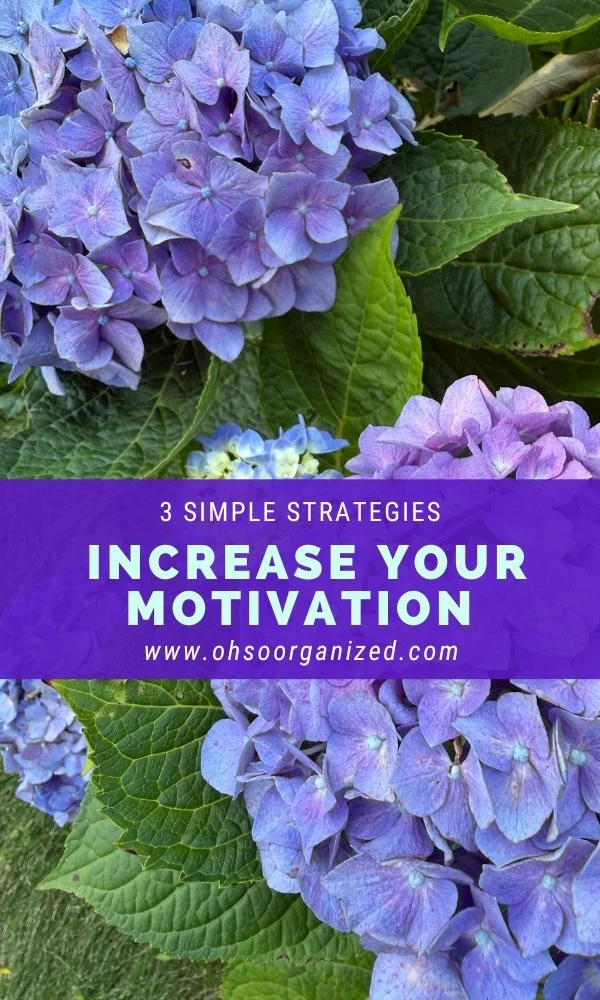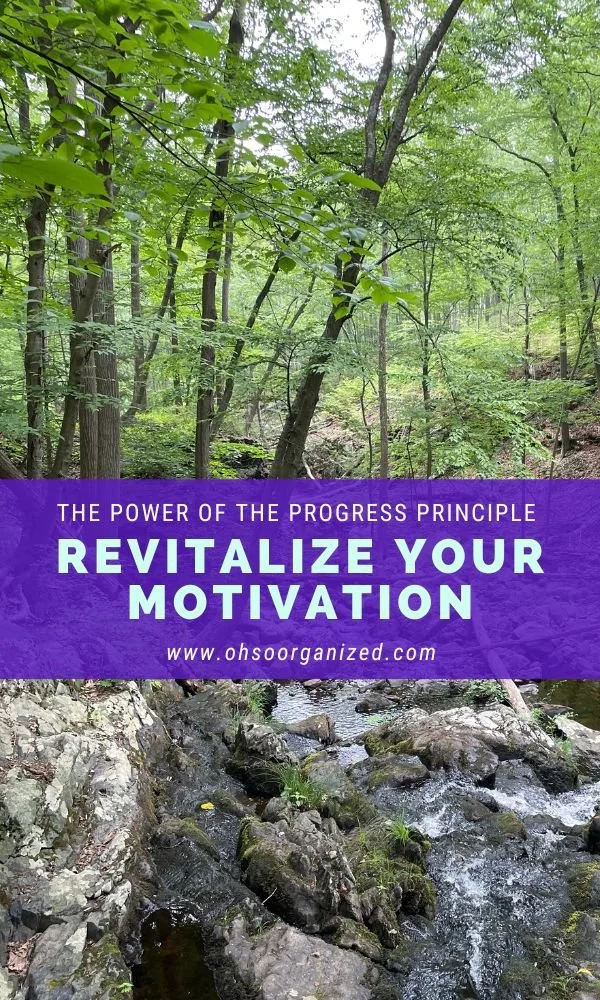Motivation isn’t always there before you start what you want to do. It might be, but more often it shows up after you begin taking action. The mind can play tricks on itself and psych you out. It dwells on reasons why you can’t start or reach your goal.
When that happens, motivation disappears, progress is elusive, and you feel stuck. You’re at an impasse. You can remain in this limbo, negative state, or you can turn things around.
If you’re ready to change the dynamics, I have some ideas to help. There are many ways to get unstuck, boost your motivation, and act on what matters most. I compiled three approaches related to focus, fear, and perspective.
3 Simple Ways to Improve Your Motivation and Get Unstuck
1. Motivation and Focus
“Focus on the seeds, not the trees. What seeds are you planting today?”
A common reason for a lack of motivation is feeling overwhelmed. It’s important to understand your overall goal or objective. However, focusing too far in the future on what it will take to reach that goal can be demotivating.
Instead, narrow your focus and stay present. This will help boost motivation. Invest in small actions that support your larger goal. Keep your attention on the now and your next step, while remembering your ‘why’.
Eventually, the seeds you plant will grow into the trees you desire.
REMEMBER: “Focus on the seeds, not the trees. What seeds are you planting today?” – James Clear
2. Motivation and Fear
“Any next action.”
A few months ago, Kara Cutruzzula, a writer, playwright, lyricist, and friend, wrote a piece on Substack called “Hop to the other side of fear.” She shared how being unprepared and scared can get in the way of progress, yet these are fixable challenges.
In response, I commented that fear, indecision, and uncertainty can be paralyzing and demotivating. However, taking any next action can help break that cycle.
What fears are holding you back?
What decision are you struggling to make?
How can you get ready to take the next small step?
How is uncertainty preventing you from moving ahead?
Taking action holds undeniable power. It encourages further progress, boosts motivation, quiets fears, and helps you move forward.
REMEMBER: “Any next action.” – Linda Samuels, CPO-CD®, CVOP™
3. Motivation and Perspective
“Make your what-if questions positive, not negative.”
Someone once suggested to me that it’s unhelpful to ask ‘what-if’ questions. Honestly, that has never prevented me from pondering them. How you phrase the ‘what-ifs’ is essential.
Especially when you’re feeling stuck and lacking motivation, it’s more helpful to reframe your ‘what if’ questions from an optimistic perspective.
Instead of dwelling on:
What if I never get my home organized?
What if I don’t complete this decluttering project?
What if I can’t change my unhelpful habits?
Instead try:
What if I make my home organized enough so that our family feels calmer and less stressed?
What if I finish this decluttering project so I can downsize to my new home?
What if I change my bad habits to feel healthier and more energetic?
‘What if’ questions can motivate and encourage action when they are framed to highlight positive outcomes.
REMEMBER: “Make your what-if questions positive, not negative.” – Todd Henry
What Motivation Strategies Are Most Effective?
If “action precedes motivation,” as Julie Bestry, my friend and colleague, says, what helps you take that next step? Do you have motivational challenges? Which of these strategies resonates most with you?
I’d love to hear your thoughts. I invite you to join the conversation.
How Can I Help?
Do you need support with motivation, activation, or organization? I’d love to help! Virtual organizing is an extraordinary path forward – Local feel with a global reach.
Let’s talk. You can:
Email me at linda@ohsorganized.com or
Call 914-271-5673
Organizing and sustaining motivation is possible, especially with support.












